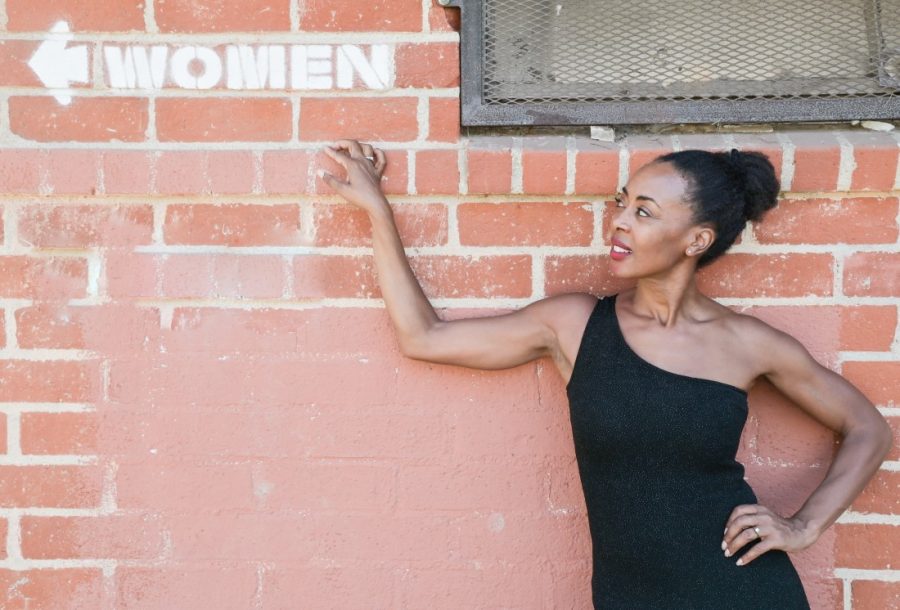Peppur Chambers is a 1992 Marquette graduate and studied advertising. However, she pivoted her career, and instead wanted to make a difference by writing books and empowering Black women.
“I started writing because I love the world that you can create with words. I love that you can disappear,” Chambers said. “When I write, no one can interrupt me; I am in my own little bubble.”
Chambers began writing her first fiction novel, “Harlem’s Awakening,” in the early 2000s. The book is about an 18-year-old wealthy Black woman named Harlem, in the 1940s, who moves from North Carolina to Harlem, New York. It takes the reader on the journey of Harlem’s life and navigating the violence and hardships she encounters in New York.
With “Harlem’s Awakening” released in 2013, now Chambers is set to release the sequel called “Harlem’s Last Dance“ on March 23. This novel will continue Harlem’s journey as she grows into a young Black woman. Chambers is also planning to continue the series by releasing a third book in the future.
The series is set in the 1940s because of Chambers’ love for the period and the vintage aesthetic. She said she also loves that this book asks readers to use a little bit of imagination and picture the scenes.
“Everything nowadays is so in your face, and nothing is left to the imagination,” Chambers said. “What I wanted is this concept of innuendos, there’s a little bit of mystery still and I used that as a device for myself, so nothing is on the nose.”
The novel highlights aspects of the 1940s but being that the book is from the point of view of a young woman brings another perspective to the story. Chambers relates to the character and almost looks at Harlem like it is herself, and it is “autobiographical in a sense.”
“When you’re 18 it’s like you’re this adult but you’re so young and naïve and don’t know what’s going on, and sometimes people will try to take advantage of you,” Chambers said. “Being an 18-year-old is a pivotal age to find your voice and speak up.”
This book shows a lot of Harlem’s journeys and the struggles she must overcome to make it in the big city, because being young and alone comes with a lot of challenges.
“Harlem has her life ahead of her, and I wanted to grow with her,” Chambers said.
“Harlem’s Awakening” took 13 years for Chambers to write. She details how writing for her starts with dialogue and visuals.
“When it comes to fiction there are two things that I do — because I have an acting background, I hear dialogue first. I will literally hear a character talking, and I will just write what I am hearing and fill in the bits and pieces,” Chambers said. “Then I use my senses — like, what am I seeing, what am I hearing, what am I touching, what am I feeling and use that.”
While writing “Harlem’s Awakening,” Chambers wanted to write a fiction book that had an impactful message. She wanted to include the concept of social class, and how Black women are usually viewed as poor.
Chambers wrote this book with the intended audience to be women between the ages of 18 and 45. She also targeted Black women and wanted “Harlem’s Awakening” to show Black people in a positive, strong light.
When Chambers was reached out to by some of her peers, she noticed that this demographic did not have to be her only audience and this work of art could spark conversation among all ages, races and genders.
“Harlem’s Awakening” was read in a book club by some of her Marquette friends, which included white males over 40. While this was the first time Chambers had done a book club meeting with this demographic, she enjoyed the experience.
Chambers continues her work outside of writing through women’s empowerment and representation. She created the Brown Betties an organization that is geared to empower Black Women and show representation in the pin-up world. Which are women who represent independence and dress in an appealing way.
Chambers created the stage version of the book prior to it being published. The stage version was a dinner theater show titled, “Harlem’s Night”. At the dinner theater show, patrons enjoyed a show performed by the Brown Betties, while enjoying a nice dinner.
She was inspired to create the Brown Betties from two iconic pin-up characters, Bettie Paige and Betty Boop. The Brown Betties consist of four Black Women, love, hate, want and need.
“There was not a lot of Black representation in the pin-up world. I always wanted to be a pin-up girl so I embodied that,” Chambers said. “A Brown Bettie deserves their spotlight, and everyone deserves to shine no matter what their story is.”
This story was written by Aiyona Calvin. She can be reached at [email protected].




